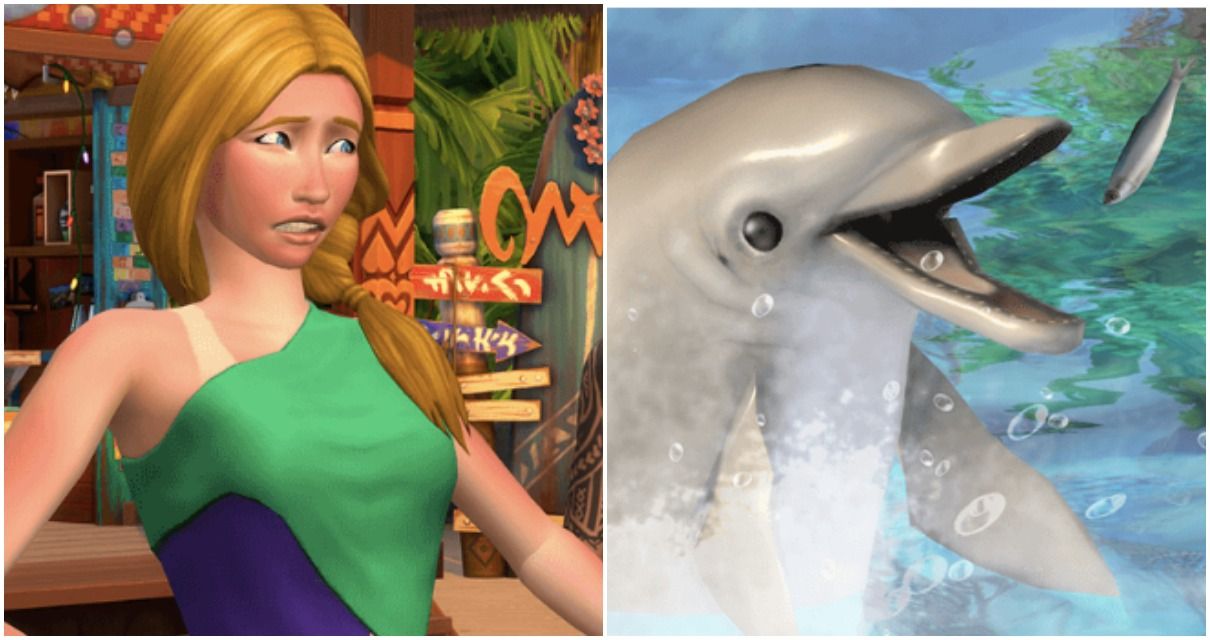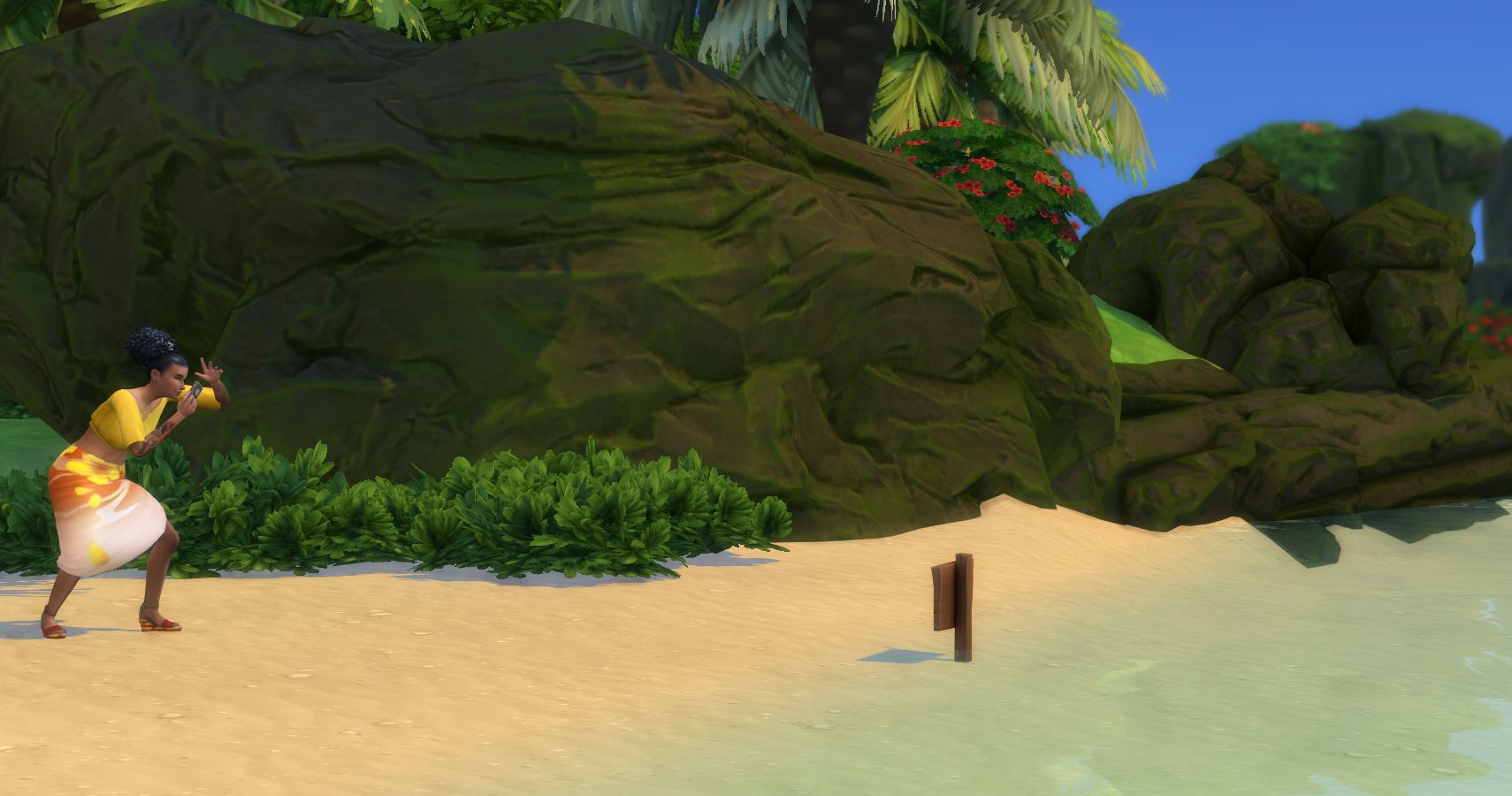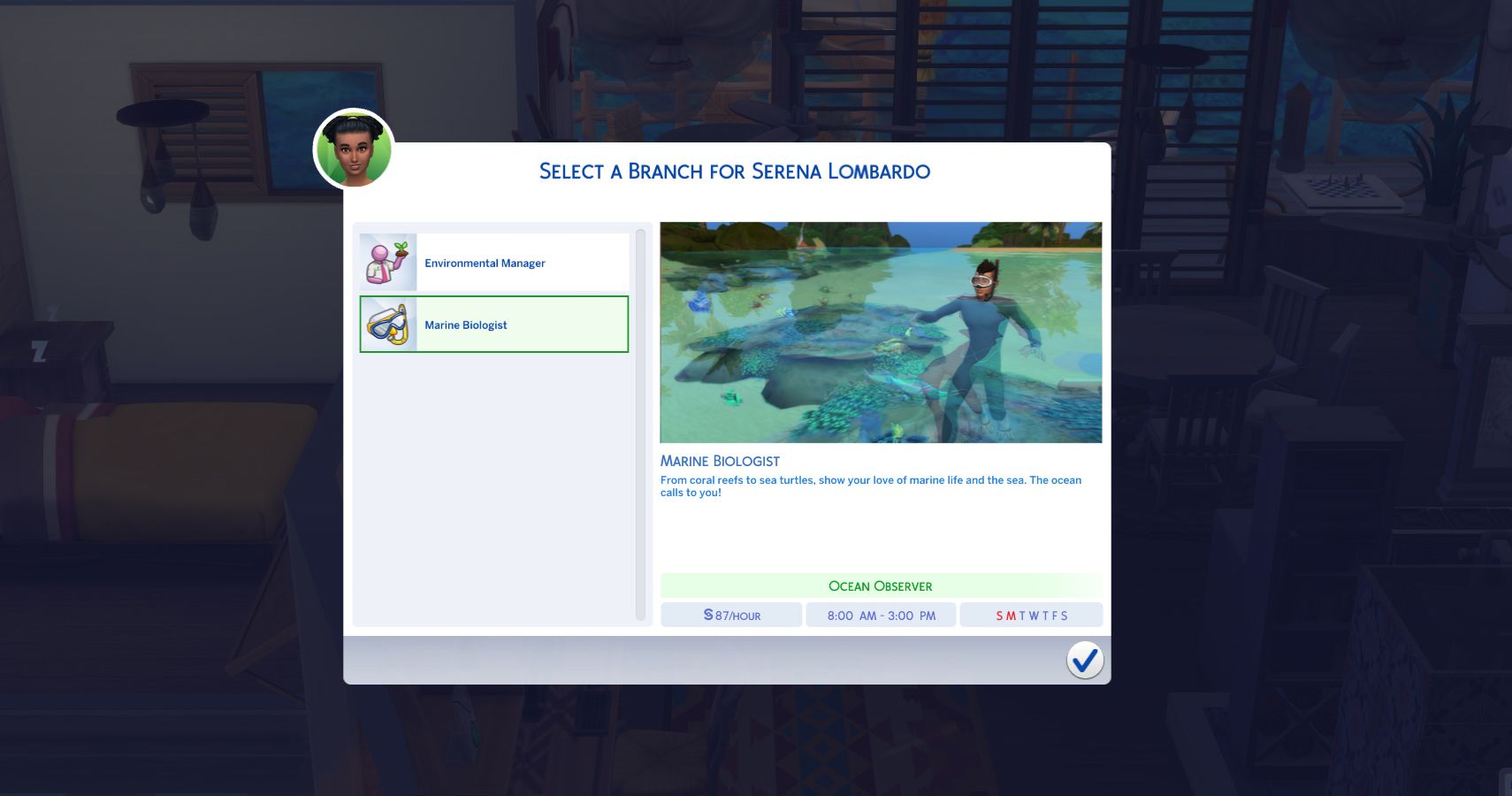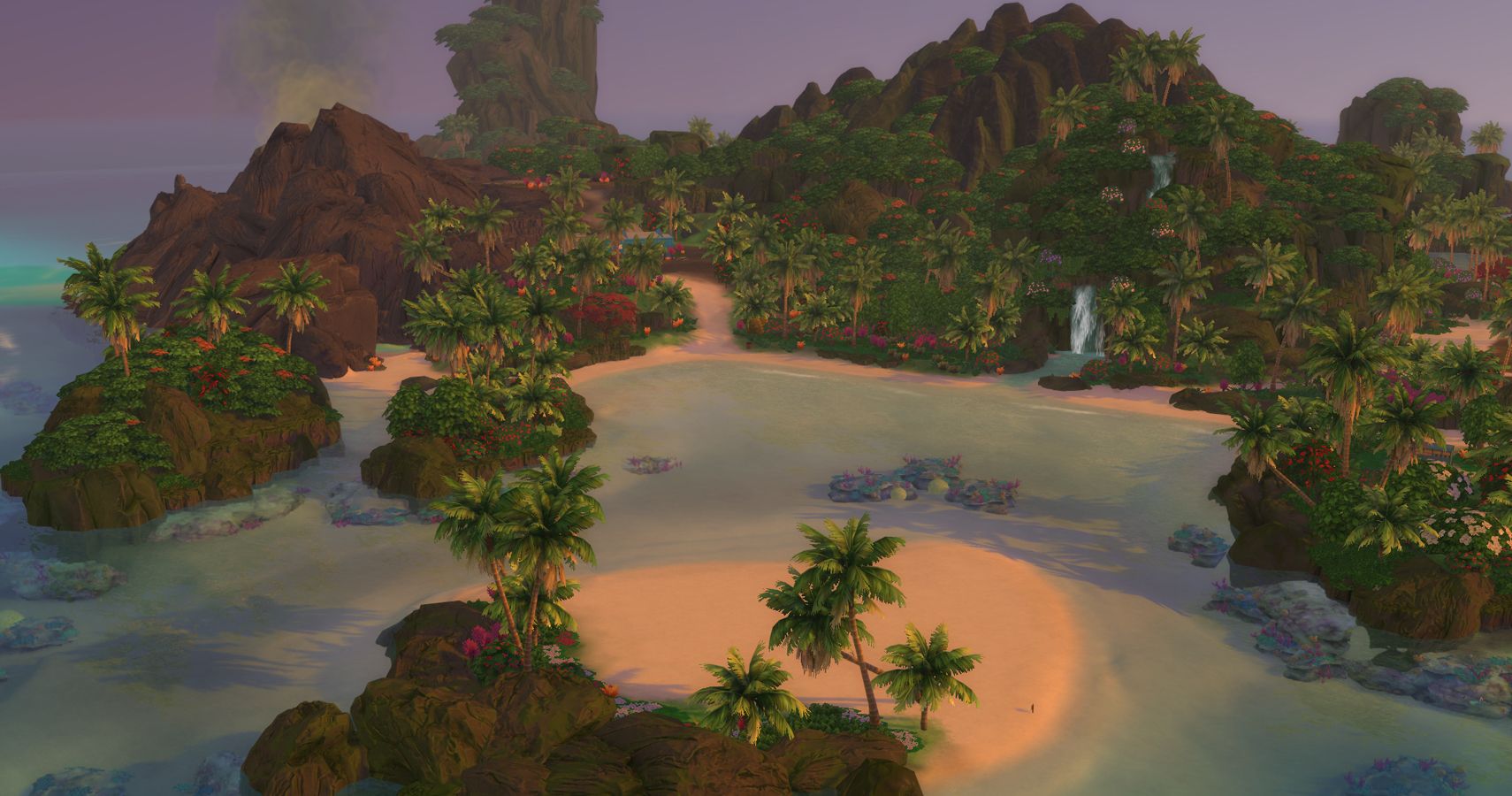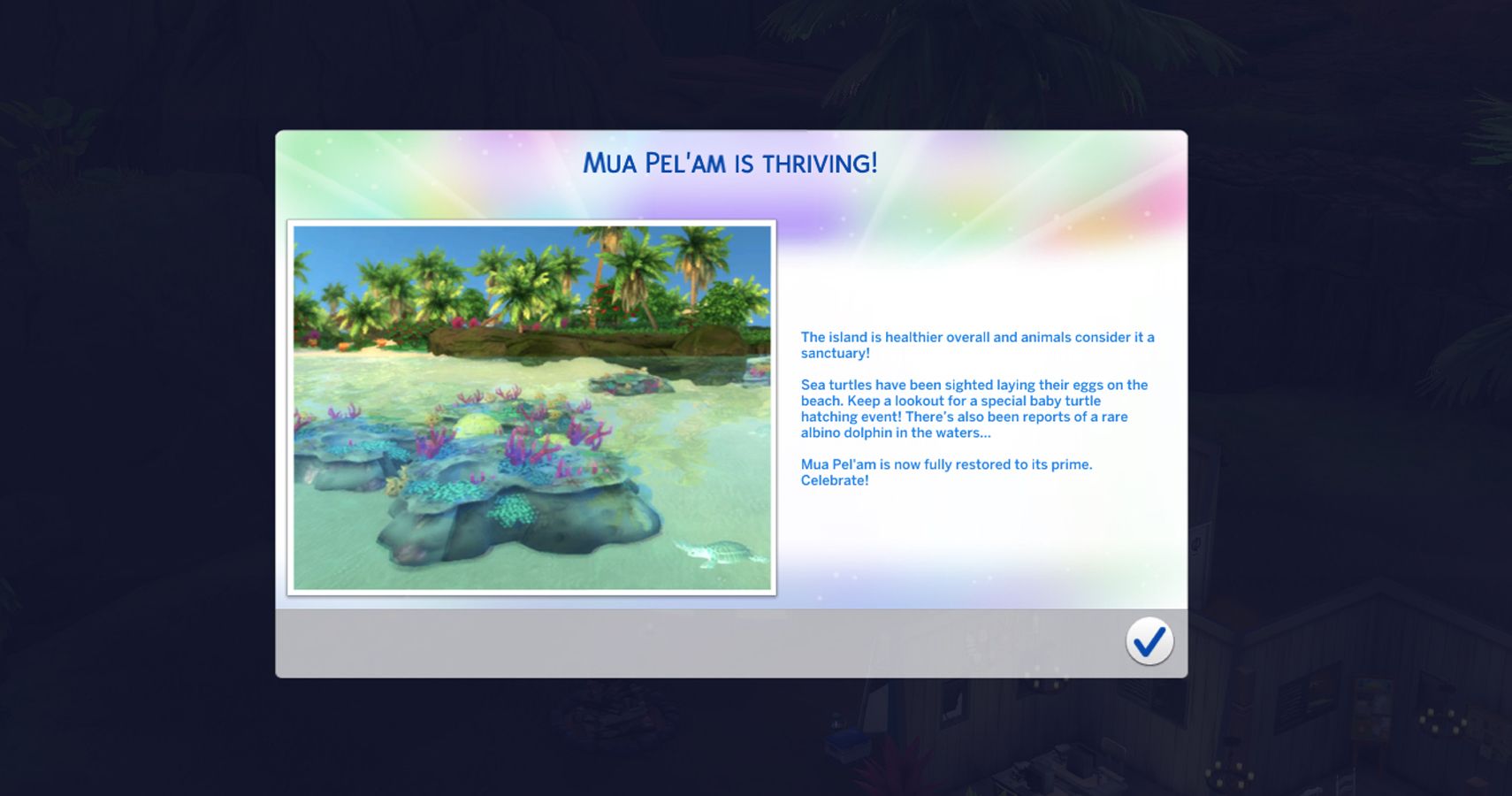The Sims 4 Island Living has brought a new career to the game, conservationist. It’s a semi-active career, allowing players to choose between a rabbit hole work day or fulfilling some tasks from home. Like most careers, it has two branches. Both of these will reward players with a unique trait once they reach level 10. While the career isn’t essential to restore Sulani to its full and vibrant state, it will help you develop and maintain the Mua Pel’Am district and in turn the whole island.
Daily Tasks
If you choose to work from home the tasks will all center around Mua Pel’Am to begin with. I chose not to live there but instead renovated the Caldera Camp and made it a public lot. This worked well, as I had a place to visit in order to fulfill my tasks and my needs. I made sure to add computers for research tasks and some logic skill building items.
The early daily tasks include taking photos, surveying, and researching. You may also be asked to spread conservation awareness to others or tidy up the beaches. Alongside this you should be working on your logic skill, which you'll eventually need to max out.
You can survey items or places anywhere in the Mua Pel’Am district. All harvestable trees and plants have an option to survey or take photo. You can also access these same options on the wall mural, cave and fishing spots. Alternatively, any photos taken in the area with your phone or a digital camera from your inventory count towards that task.
Choosing Your Branch
As you continue through the career you will be given a choice of branches, Environmental Manager and Marine Biologist.
Environmental Manager will make your career more home focused, as it involves administration type tasks. The tasks of research, spreading awareness, researching, or writing conservation papers and submitting grant applications can all be done at home, just make sure you have a PC. You can also consult on policy, using your mobile phone.
Submitting grant applications can also earn you some extra cash, with successful grants being paid directly to your sim. You can also either sell your research or submit it for a small job performance boost. This branch focuses mostly on logic and charisma skills.
The Marine Biologist branch is much more active and hands on. It will involve diving, studying wildlife, and surveying the ocean. It focuses on the fitness skill, which you will need to work on alongside the logic skill.
Rewards For Your Hard Work
The Environmental Manager branch rewards the trait Natural Speaker. This helps you get more grants approved and gives you a boost to the island's health when spreading awareness. You'll also get a “can you see me now?” camera.
Marine Biologists will get the Master of the Sea trait, which boosts success rates for scuba diving and free diving and aids your ability to make friends with dolphins and mermaids. You'll also get a new wet suit.
Both branches will gain the conservationists' clothes and canoe before they choose a branch.
A Heart For The Island
Many of the tasks in this career will give health to the island. You can see when this has happened by looking for a green heart in front of your sim after a task is completed. As you build up hearts the island will change.
There are two higher levels which you can achieve and they unlock new events, such as the baby turtle hatching day. Each new level also makes the trees and coral more vibrant, reduces visible trash and pollution and adds wildlife to the area.
While looking after the island can be done by any sim, the conservationist career makes it a focus. It also allows you to make extra money beyond your daily tasks via submitting grant applications (Conservation Manager) or doing a rabbit hole event, shooting a nature documentary (both branches). In short it’s a reasonable money maker which fits in well with the vibe of the island.

